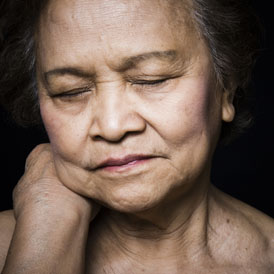Study reveals undiagnosed dementia rate
More than a million people will suffer from dementia by 2021 and six in ten won’t be aware they have the condition, according to a new Alzheimer’s Society study.

The study by the Alzheimer’s Society, ‘Mapping the Dementia Gap’, shows variations in the number of people suffering from the disease and those who have actually received a medical diagnosis.
Currently Dorset has the lowest rates of diagnosis with only one in four people with the Alzheimer’s aware that they have the condition. Belfast had the best rate with seventy per cent of sufferers successfully diagnosed.
The figures also detail the challenges faced by areas in the future. Milton Keynes is the fastest growing area and can expect a 56 per cent increase in people living with the condition. But Barking and Dagenham is predicted to have slightly fewer people living with dementia in 2021 than now.
The report does not detail the reasons behind the differences in diagnosis rates but it is thought an ageing population, differences in access to health services across the UK, and community attitudes all contribute to the regional disparity. Experts claim many people delay seeking help because they fear they will lose their independence, even though evidence shows early diagnosis allows patients and their families to access treatment and support.
A spokesperson for the Alzheimer’s Society say they are now working on a second phase of research with charities and primary care trusts to find out ways to improve diagnosis rates.
They are now looking at the better performing areas in the country and are encouraging greater training for GPs to spot signs in earlier on. She went on to say that the Alzheimer’s Society are “very worried about Government spending cuts to a range of services that affect the care of dementia patients”.
The charity say greater awareness can help tackle the stigma attached to dementia and encourage people with symptoms to seek advice from their GP. They have now set up a series of road shows working in partnership with Tesco’s. Jeremy Hughes, chief executive of the Alzheimer’s Society, said: “The money raised through the Tesco partnership will help us ensure people with dementia don’t face it alone.”
That call was echoed by the chief executive of Alzheimer’s Research UK Rebecca Wood, who said: “It is a great injustice that so many living with dementia never receive a formal diagnosis. Receiving a diagnosis can help families plan for the future and access support services to help maintain quality of life.”
Care services minister Paul Burstow encouraged steps taken to educate people about the disease. He said:
“With our ageing population and the high number of people who never receive a diagnosis for their dementia, the need for raising awareness and encouraging people to seek help has never been greater.”
The disease which currently costs the country around £20 billion a year causes over 60,000 deaths a year. Two thirds of people with dementia live in the community while one third live in a care home.